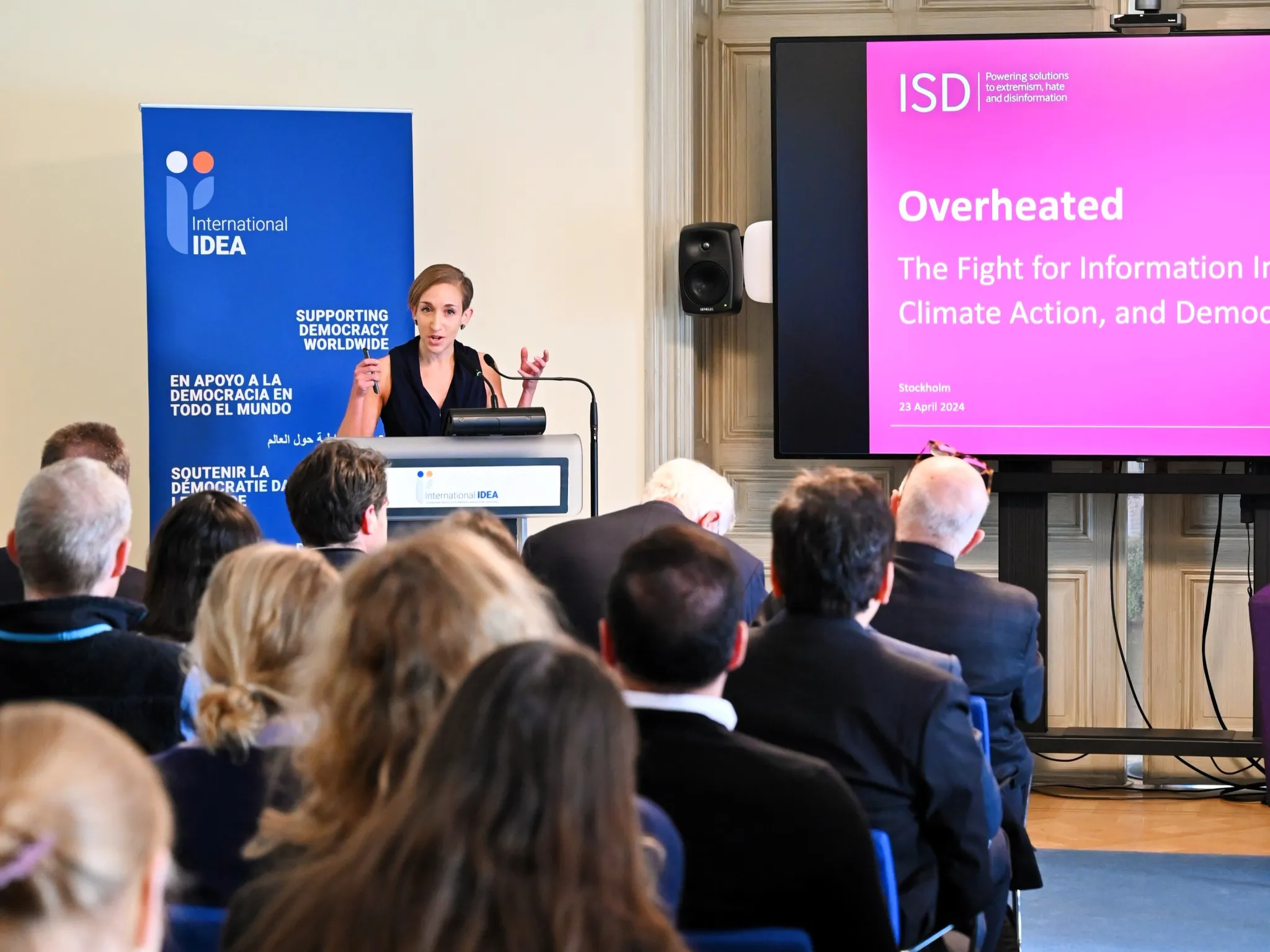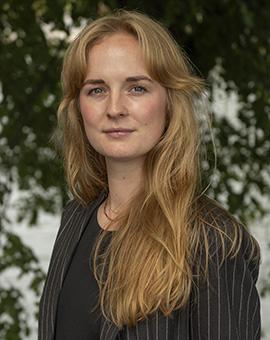Stockholm Series #1 with Jennie King – video and manuscript

The video recording and the lecture manuscript are now available.
This new initiative features quarterly lectures on topics around the climate-democracy nexus, hosted by International IDEA in partnership with the Konrad Adenauer Stiftung’s Nordics Office, the Stockholm Environment Institute, the Stockholm Resilience Centre, Future Earth, LSU – The National Council of Swedish Children and Youth Organisations, and We Don’t Have Time.
The inaugural lecture of the series was given by Jennie King, Director of Climate Policy and Research at the Institute for Strategic Dialogue (ISD), under the title “Overheated: The Fight for Information Integrity, Climate Action, and Democracy”. At ISD, and in her role as co-founder of Climate Action Against Disinformation (CAAD), Jennie has spent the past years doing pioneering research on the evolution and state-of-play of the climate information landscape. Her message to the lecture audience was serious yet not without hope - we need to understand the gravity and threat that climate disinformation poses to both the planet and democracy, but there are things we can do about it.
Jennie showcased how climate disinformation in recent years has transformed, in particular as conspiracy narratives that emerged during the COVID-19 pandemic have contributed to polarizing the climate debate. Climate disinformation is far from a new phenomenon, yet the number of actors who benefit from it, and the width of their objectives, have increased dramatically in the last few years. The lecture discussed how the type of deceptive content also has changed in nature: rather than denying climate change, it now consists of different tactics which focus on delaying and opposing climate action.
Fueled by actors in the fossil energy industries as well as groups benefiting from the online ‘attention economy’, Jennie noted that what sets climate change disinformation apart from other phenomena of this kind, is the money behind it: “Within climate discourse you see a multi-billion dollar ‘disinfo machine’”. Time and again, studies show how the amount of climate mis- and disinformation outperforms verified content in online spaces, due to attention-driven social media algorithms and monetized ads. “If democratic debate is something precious and essential to climate action, we have to ask: is the playing field real level?”.
Jennie underscored that believing in misinformation is in itself not extremist but has a ‘radicalizing potential’. It sows division, and when mainstreamed, climate conspiracies create openings for actors to co-opt the debate and centre more violent and extreme agendas.
The final part of the lecture focused on solutions. Here, Jennie advocated for regulation and transparency measures, as well as soft approaches like improving climate literacy and communication. Jennie stressed that we must not only address the supply side, but also the demand side of climate (dis)information. Misleading claims must be “pre-bunked”, and climate policy must be communicated and discussed at local levels, engaging people on what the transition means directly for them.
The lecture was followed by a discussion with Victor Galaz, Assistant Professor at the Stockholm Resilience Centre, and International IDEA’s Secretary-General, Kevin Casas-Zamora. Victor pointed out that while disinformation is flowing online, we know relatively little about how it impacts public opinion on climate policy. People’s perceptions are often based on flawed information, but not always in the ways that one might expect. It has, for instance, been found that the public generally supports more ambitious climate action, but that people systematically underestimate the commitment of their peers.
Secretary-General Kevin Casas-Zamora put climate disinformation in the context of larger anti-democratic trends. The COVID-19 pandemic gave rise to many conspiracies, yet the roots of the demand for disinformation run deeper. “Trust has been in short supply for a long time”, he concluded, underscoring that any attempt at coming to terms with climate disinformation must address the underlying sense of alienation in many democratic societies.
The Q&A raised questions about the impact of artificial intelligence on climate disinformation, the importance of better climate opinion polling, and how prevalence of climate disinformation is not so much the problem as the mainstreaming of it. It also touched on how to locally anchor climate debates and involve citizens in decision-making – foreshadowing the next lecture in the Stockholm Series on 11 June 2024, which will be held by Nicole Curato, University of Canberra, and will focus on climate deliberation.




